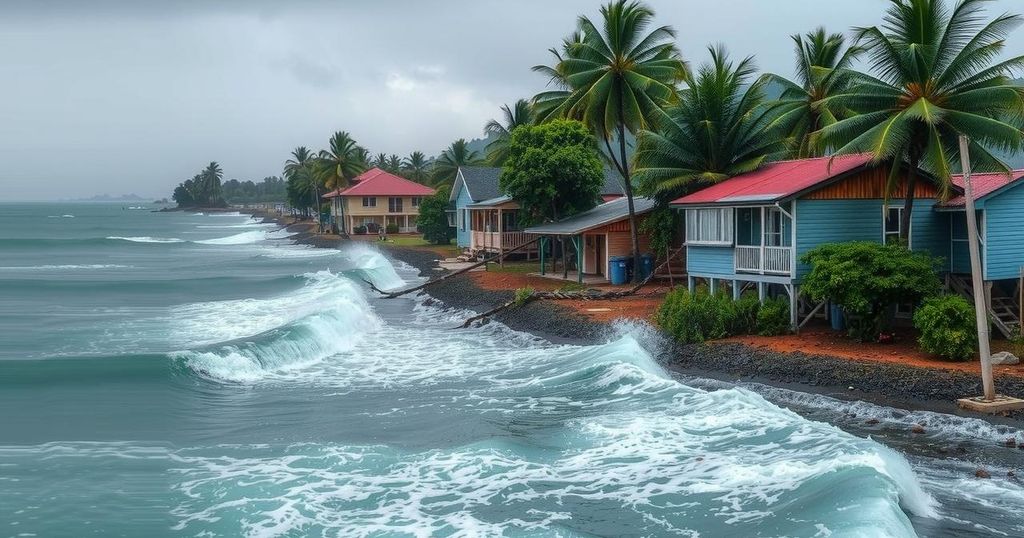Tropical Cyclone Chido Ravages Mayotte: Devastation and Humanitarian Crisis
On December 14, 2024, Tropical Cyclone Chido, the strongest storm in 90 years, struck Mayotte, resulting in at least 21 deaths, over 830 injuries, and leaving one-third of the population homeless. The cyclone brought with it winds of up to 230 km/h and significant infrastructure damage, including to health services. Authorities fear the death toll could rise significantly as recovery efforts continue.
On December 14, 2024, Tropical Cyclone Chido, the most powerful cyclone to strike Mayotte in nearly a century, wreaked havoc across the island, resulting in a devastating human toll. Initial reports indicate at least 21 fatalities and over 830 injuries, but local authorities fear the actual death toll may escalate into the hundreds, or even thousands, as the extent of the disaster is evaluated. Approximately 100,000 residents were relocated to emergency shelters amid widespread homelessness affecting one-third of the island’s population of 320,000.
Packing winds of 180 to 230 km/h (112 to 143 mph), the cyclone caused substantial damage, downing power poles, uprooting trees, and tearing roofs from houses. The local government mandated that residents remain indoors during the storm for safety. Following the cyclone, aerial assessments reveal scenes of destruction, with hundreds of makeshift housing units significantly damaged.
The local health infrastructure has also been severely compromised, with the main hospital suffering massive water damage and the loss of vital operational capacity in critical units such as surgery, intensive care, and emergency services. Health Minister Geneviève Darrieussecq reported that medical centers across the region have become non-operational.
Reinforcement efforts are underway as Minister of the Interior Bruno Retailleau visited Mayotte, supported by military personnel and firefighters. Emergency supplies, including medical kits and personnel, were dispatched to the region to facilitate immediate relief efforts. As recovery operations commence, the full scale of destruction remains uncertain and under evaluation.
Eyewitness accounts describe the aftermath as apocalyptic, indicating severe impact across both residential and industrial sectors. Authorities are mobilizing extensive resources in an effort to address the humanitarian crisis precipitated by Cyclone Chido.
The island of Mayotte, a French territorial outpost in the Indian Ocean, experienced its most significant meteorological catastrophe in nearly 90 years when Tropical Cyclone Chido made landfall. Local and international emergency management agencies are grappling with the aftermath of this natural disaster, characterized by high winds and intensive rainfall leading to widespread destruction and displacement. The scope of the cyclone has prompted fears of a substantial increase in casualties and a strain on medical and emergency services crucial for recovery efforts. Government officials are emphasizing the urgent need for rescue operations, assessment of damages, and supply of necessities to the affected populations. As the area is still under assessment, the focus remains on ensuring the safety and health of the inhabitants while beginning the rebuilding process.
Tropical Cyclone Chido has caused unprecedented devastation in Mayotte, with authorities bracing for a potentially catastrophic rise in the death toll. The cyclone’s high winds and extensive damage have rendered health services ineffective, necessitating urgent relief efforts from the French government and military. The community faces immense challenges as many residents are left homeless and reliant on evacuation shelters, highlighting the urgent need for aid and recovery measures as the region begins to comprehend the full weight of this disaster.
Original Source: watchers.news




Post Comment